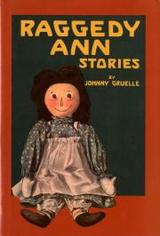Non-Fiction Readers Less Empathetic Than Fiction Readers
Earlier, I posted an article on how fiction affects the brain in the same way real-life experiences do. While non-fiction can transmit information, fiction transmits experiences that give context and concreteness to that information. The very reason so much non-fiction relies heavily on short story snippets to illustrate their points.
But those short story snippets are no replacement for total immersion into a story. At best they can illustrate the point being made, but the reader is not often lost in a story by which they experience the truth. This is where novels shine and non-fiction is severely limited.
This fact is highlighted by an article from NBC News by Meghan Holohan, titled, “Getting lost in a novel means you’re more empathetic.” She makes the following observation based on scientific studies:
People who lost themselves in the fiction showed more empathy than people who did not become as involved in fiction or read nonfiction.
“[W]hen we get lost in a book, we are in another world, in which we can freely experience the character’s feelings and thoughts as if they were our own, through which we ‘learn’ how other people think and feel about problems in life. This again can be transferred to real life, so by reading a book and getting involved in the story, we are able to sympathize with other people,” Bal says.
Chalk up another point to the benefits of reading fiction. Not only do those who eschew fiction in preference of non-fiction lose out on experiencing reality from different perspectives, a broader cultural exposure, and increased brain functioning, but also lose out on the opportunity to break out of our ego-centric focus. Fiction gives us the opportunity, as my mom always used to say, to “walk a mile in their moccasins.” Or as St. Paul would say, “Treat each other as more important than yourself.”
Do you think those who are more empathetic lose themselves in fiction, or does losing oneself in fiction makes one more empathetic, or both?
—————-
Article originally appeared on R. L. Copple’s blog, on February 12, 2013.






































The idea of fiction making one more empathetic seems consistent with my experience. A couple of recent interactions with a video game character may have saved me from getting into an argument with a friend a few days ago.
I believe fiction, especially fiction that includes some sort of selfless heroism, has made me more empathetic. After spending so much time immersed in a hero’s story, I find myself wanting to emulate them. This inspires me to act with greater compassion to those around me.